Special Subjects
The Honolulu Waldorf School offers a broad range of subjects that support the students’ intellectual, artistic, and practical education. Students are taught by a team of teachers who are able to bring the rich diversity of the Waldorf curriculum. Most academic subjects are taught by the main lesson teachers, and students study with a variety of subject teachers who are specialists in their fields. Special subjects include Japanese, Spanish, movement education and games, handwork, music, strings, eurythmy, painting, drawing, clay and beeswax modeling, woodwork, metalwork, and drama.
Applied and Fine Arts
The Waldorf schools are famous for their deep integration of the arts into all aspects of the curriculum. A student’s progress through various media and artisanal crafts takes them through the course of the entire planet’s art history. From watercolors to blacksmithing and graphic design, all Waldorf students receive a strong foundation in art and learn how to apply it to specific problems and situations.
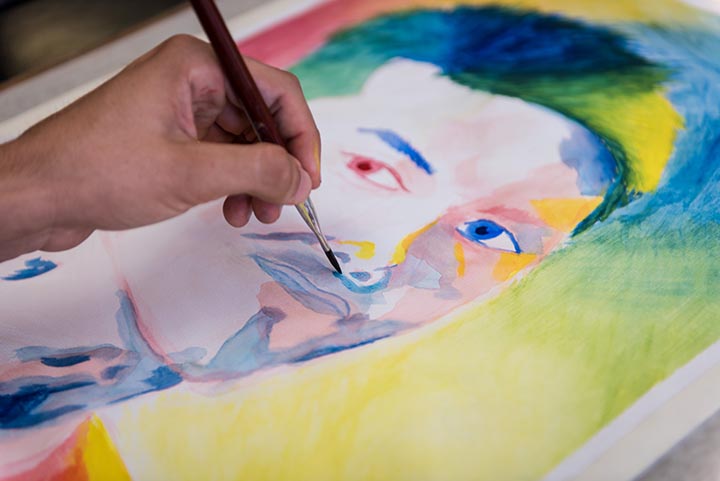
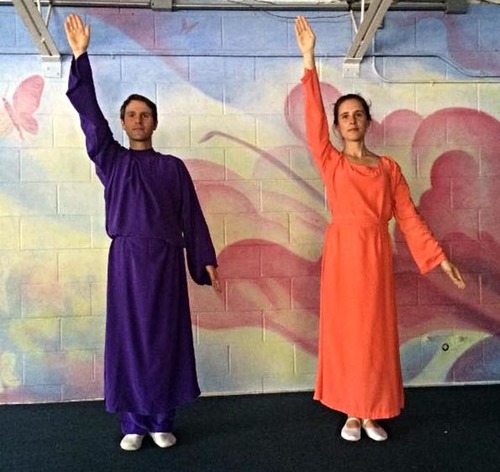
Eurythmy
Eurythmy is an art form where music and speech are expressed through movement and gesture. In kindergarten and the early grades, eurythmy is experienced through storytelling and songs. As students progress through the grades, they work with a variety of poetry and music, moving through intricate and complicated patterns individually and as a group. The eurythmy curriculum is closely tied to main lesson curriculum, and the students experience, artistically through eurythmy, aspects of mathematics, geometry, grammar, and history.
Handwork
Handwork serves to develop fine motor skills, dexterity, focus, and sensory integration, and the finished products give the students the satisfaction that they can create useful and beautiful items. The handwork curriculum includes knitting, crocheting, cross-stitching, felting, basket weaving, Hawaiian handcrafts, sewing, and woodworking. Students are encouraged to work artistically and create their own combinations of colors and patterns. Handwork has been shown to support intellectual development and plays an integral role in Waldorf schools.
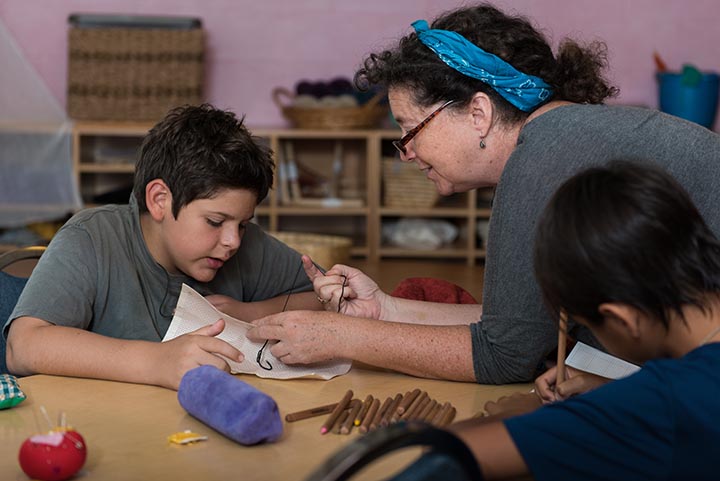
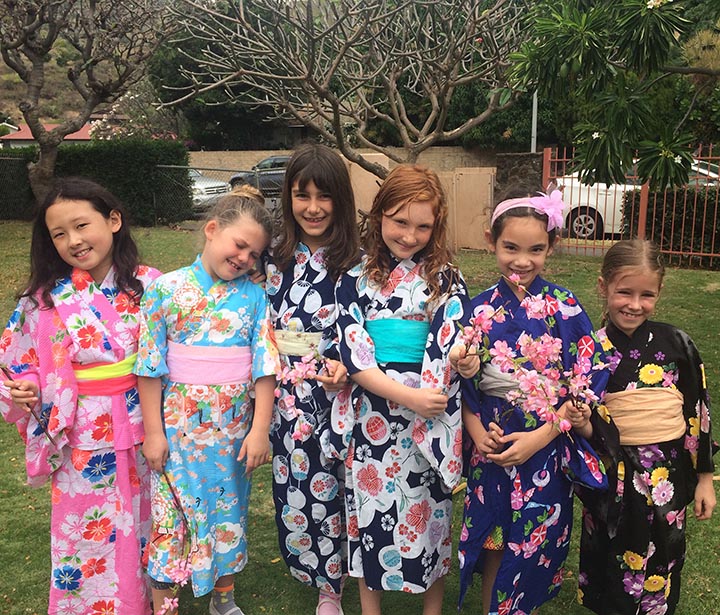
World Languages
Students are taught both Spanish & Japanese in alternating blocks as part of the standard World Languages curriculum that starts in Early Childhood and continues through eighth grade.
Games and Movement Education
The movement education curriculum is designed to meet the specific developmental stages of the students. Games and movement education classes support the students in healthy social interactions and help bring their physical bodies into harmony. In the early grades, students are learning to play and work together as a group and develop physical skills. Traditional games such as tag, circle games, and jumping rope are emphasized. Beginning in third grade, students participate in circus activities, learning to juggle, walk on stilts, and unicycle. In fifth grade, there is a focus on the activities of the Greek pentathlon as the students work on javelin and discus throwing, wrestling, jumping, and racing. As the students progress through the years, they develop specific skills and learn to play individual and team sports.
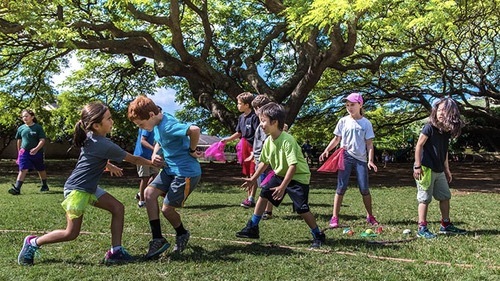
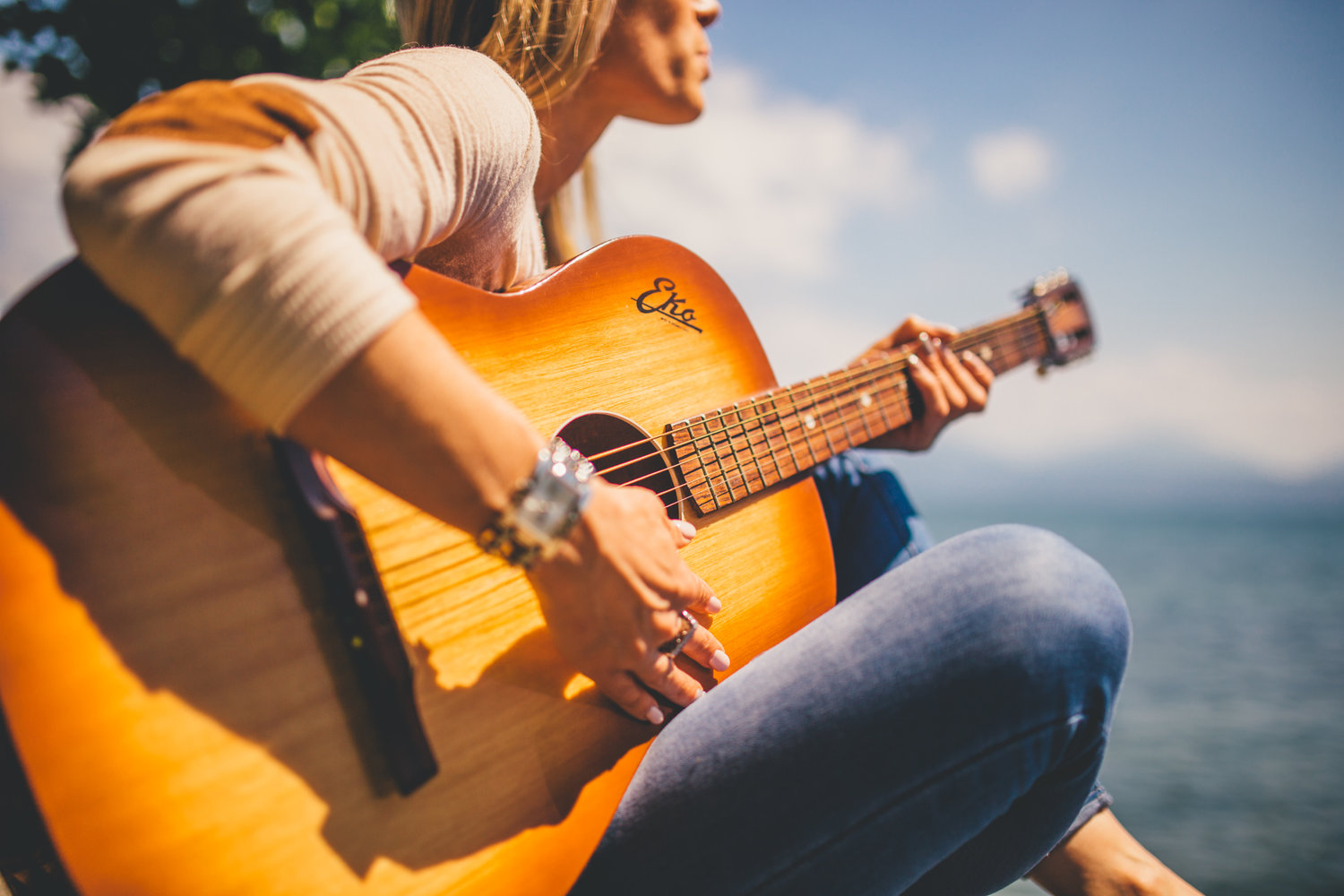
Music
Music is an important aspect of the curriculum at Honolulu Waldorf School, and all students, from early childhood to middle school participate. Singing permeates the classrooms in early childhood and the younger grades. Starting in first grade, children play pentatonic flutes, and starting in grade four, students begin playing violin, viola, or cello. The students perform their music at assemblies, class plays, festivals, and community events.